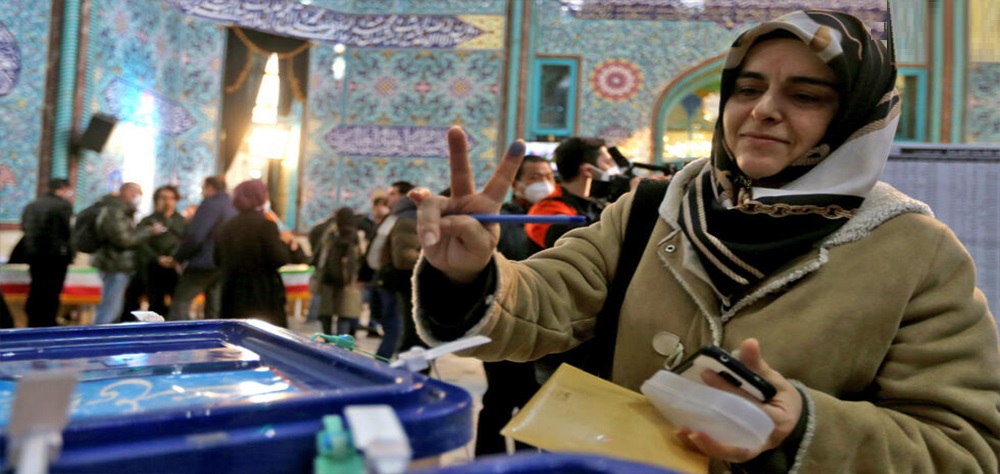One of highly important matters in this election and past elections in the Islamic Republic of Iran has been turnout of the people. This time, too, the people with their turnout on Friday shattered the dreams and plots of enemies who have been betting on low turnout to promote the idea of popular disappointment with their Islamic Revolution and its ideals.
The lower-than-expected turnout in the first round of the early election exhilarated the hostile media outlets that thought that they can fish in troubled waters and hijack the 60 percent of the eligible voters who abstained from voting in the first round and promote them as opponents of the Islamic Republic system and question the republic face of the political system.
But what the think tanks of the intelligence organizations of Iran's enemies, as the owners and managers of these media outlets, did not think about was the sudden huge turnout of the nation in the second round of the elections, which shattered this media propaganda.
A 10-percent increase in participation in the elections in just one week, which if we separate the domestic voter population from the 8 million qualified Iranians abroad, this percentage will increase even more, totally indicated the public trust in the Islamic Republic and the electoral institutions and mechanisms in the country, invalidating all the analyses of the enemies about the reasons for the low turnout in the first round as completely wrong, unscientific, and politically-motivated.
Albeit, it should be reminded that even the voice of these propagandistic horns was lost in the mass of the international media that were closely covering the voting process. In the day of election, there were many media outlets, including Aljazeera and Al-Araby, that described the elections in Iran as a unique regional example of how people are involved in the decision-making processes in the country.
In this election, according to the director general of foreign media of the Ministry of Culture and Islamic Guidance, more than 500 journalists from 150 resident and non-resident foreign media affiliated with 31 countries covered the 14th presidential election of Iran. These reporters themselves directly observed the transparent process of voting and the large participation of people in various scenes, from campaigning to monitoring the voting and vote count, and broadcast it to the world.
On the other hand, regardless of which candidate people vote for, in the political vocabulary of post-Islamic Revolution Iran, any vote of the people is understood to be a vote of confidence in the Islamic Republic, and the enemies' struggle to disappoint people with the elections has been made with awareness of this fact.
Earlier, the Supreme Leader Ayatollah Sayyed Ali Khamenei had made it clear that participation in the elections means voting for the Islamic Republic. In a speech in a ceremony celebrating Eid Al-Ghadir— the day Prophet Muhammad named Ali bin Abu Talib as his rightful successor for religious governance—, the Leader said: "Anyone interested in a strong Iran should participate in this election. Anyone who believes in the necessity of supporting the Islamic Republic of Iran should pay double attention to this. In March 2011, he said: "Each vote is actually a vote for the Islamic Republic system."
Elections in the Islamic Republic as the most important
epitome of religious democracy, the people's self-determination, and
their ultimate role in electing the officials from highest to lowest
levels is held annually on average under different titles, and from this
viewpoint, the Islamic Republic of Iran has the brightest regional and
international record in demonstration of the democratic structure and
circulation of the elites. So, the high turnout in the elections is a
kind of people's defense of this over-four-decade bright record.
/129

